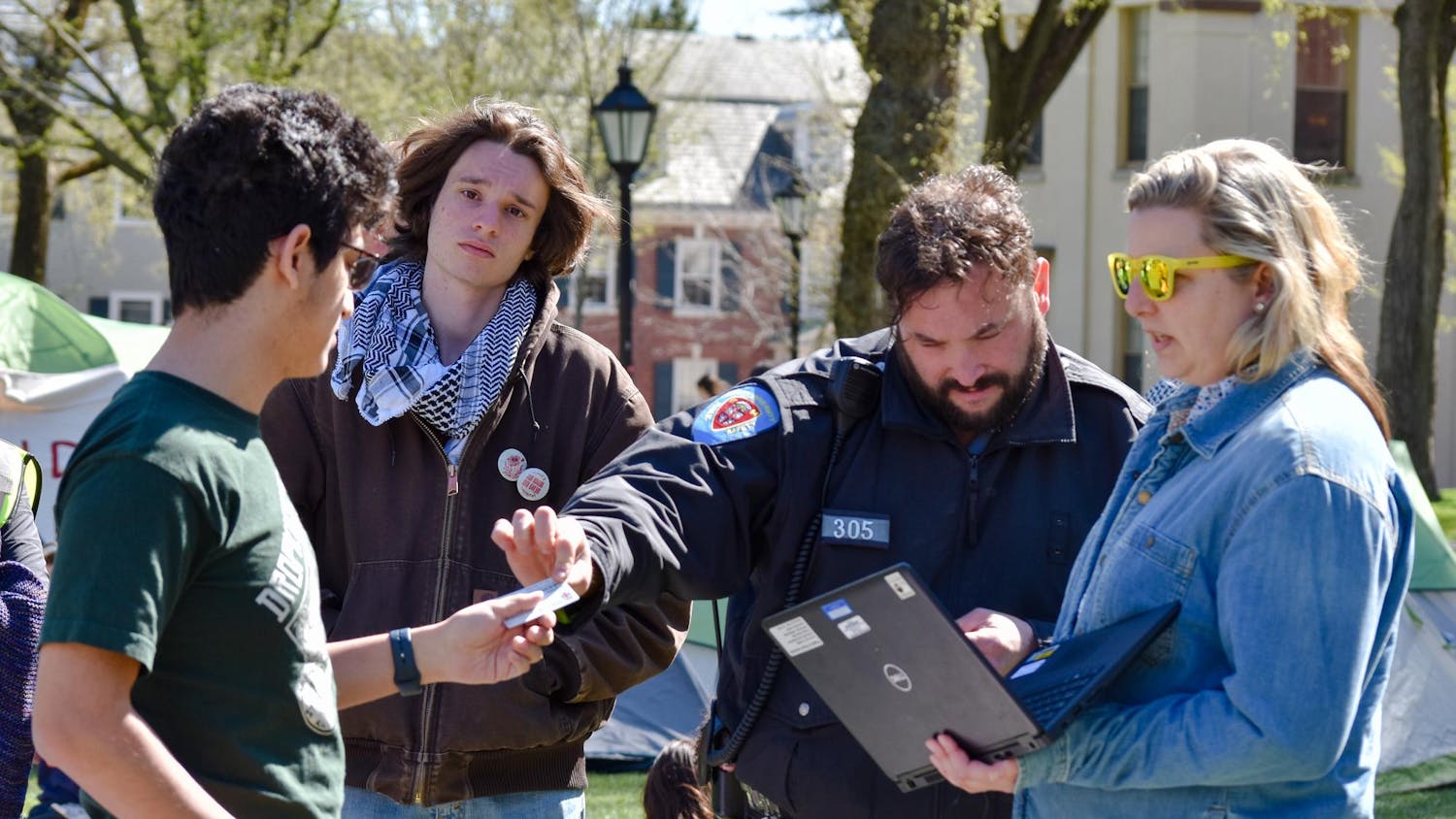Paul Farmer, co-founder of Partners in Health, spoke with The Herald Monday afternoon before his lecture, "Rebuilding Haiti."
The Herald: Interest in the field of public health seems to have exploded in recent years. From your experience, would you say this is true?
Paul Farmer: It's definitely true. … Wherever you look, there are more and more undergraduates — and young people in general — interested in public health. The way that plays itself out at Harvard is that a good 50 percent of the medical school class is interested in global health specifically, and also health disparities.
Do you see this rising interest as purely positive?
You can nitpick and find sociological critiques of any student interest, but I do think it's almost exclusively positive. These are really pressing social problems. Even if you just talk about the United States — if we're putting 16 percent of our GDP into health care, are we getting the right return? I think most people in this country would say, ‘not yet'. And having young people who are healthy — most of them don't have to worry about health insurance — having this generation be worried about problems like that ... I think is really great.
But on the flip side, it could be a passing fad in higher education?
Yes, of course. Say for example I were a paleontologist and there were a huge wave of interest in paleontology. I would say, ‘Well, I worry it's a passing fad.'
But — and I'm not trying to pick on paleontology, by the way — I think this is a topic that really needs to be front and center. Just like global warming and environmental degradation ... I think these are not problems that are going to go away. As human population expands, we're moving into more and more perilous places or crowded places.
How do you envision your role in the global health sphere?
I don't really think that I have an individual role, I'm just part of a fairly large group of people that include Brown faculty as well. ... I think there's a lot of people that are involved as ‘implementers.' ... Whether it be at a hospital in the United States or in a place like Rwanda or Haiti, a lot of us are involved in implementation work. So the question we need to ask is: How are we going to engage American undergraduates? That's my role. I'm a teacher.
Do you believe students should approach problems in global health from a certain background — medical, anthropological or otherwise?
I'm trained in both clinical medicine and anthropology, but I don't think it matters so much how you approach problems. If you're a doctor, then of course you'd want to think about taking care of patients just like a nurse would or a community health worker. But what if you're a teacher? Or an engineer? What if you're a stay-at-home dad? I think anyone can get involved in these social problems. It reminds me of the way we live in the world and in our environment. That has changed very substantially, and I think everybody has had a role in that.
You mentioned that a lot of American students are ‘healthy' people. Do you find students you interact with to be naive in their approach?
No, no, on the contrary. I think the students that I interact with are actually very well informed, especially compared to 30 years ago when I was an undergraduate. They know a lot of the complexities. Now not everyone, when they're 20, is going to understand all of the complexities. But at Harvard we're teaching undergraduates a fairly rigorous course, and I think it's well-appreciated.
If a student approaches with an interest in your field of work — perhaps specifically in Haiti or with Partners in Health — what advice would you give?
Well, the first advice I would give them is: Don't try to pattern your engagement on anyone else's. That can backfire. You will find your own way of getting involved. The advice I give around Haiti is trying to share my own experience — how I got involved in work with Haiti on a college campus, not away from it. And then later I went to Haiti and I worked with Haitians. You know, 99 percent of the people I work with in Haiti are Haitians, and I think that's why the organization has been robust.
You've told Harvard media that you don't plan on retiring anytime soon.
(Laughs) Did I say that? Can I change my mind?
Well, either way, what's your long-term outlook for Partners in Health?
That really depends on your generation. I was thinking just this morning how Partners in Health has so surpassed the founders, how it's so much bigger than we are and better than we are. We don't have the qualifications to lead a movement or to grow an endeavor that spans a dozen countries. ... But if we bring on enough people locally — in Haiti, that's Haitians and in Rwanda, that's Rwandans — and if we bring on the next generation of people ... I think the prospects for Partners in Health is good.
So you're optimistic?
Yes, I'm optimistic about the need for organizations like Partners in Health. I don't believe the need is going to diminish. It's going to grow. And I do believe that other organizations can do equally good or better work and that they need to be structured the right way. So we've also done a lot of work sharing our experiences with other, much smaller NGOs. ... There are lots of different ways to make sure Partners in Health survives. Certainly we hope it will be as Partners in Health and in the academic parts of the enterprise that we've set up, but it needs to grow in all kinds of different ways and different places that we can't reach. I doubt Partners in Health will have a presence in Nepal, for example, but that doesn't mean we can't reach out to colleagues from Nepal. Collaboration is an important way to grow.
— Brigitta Greene




